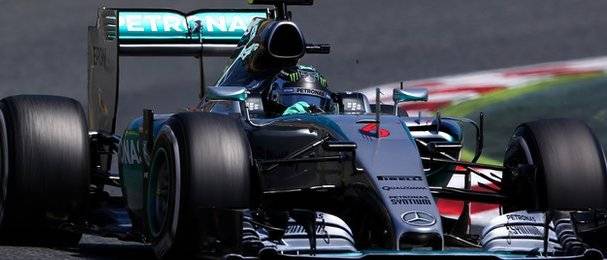Mercedes have rejected claims by Formula 1 boss Bernie Ecclestone that the current turbo hybrid engines have no relevance to road cars.
Ecclestone, 84, has long opposed the engines because they are quieter and more expensive than the previous V8s.
He told F1 Racing magazine that the engines "have nothing to do with cars; they will never be used in cars".
But Mercedes F1 engine boss Andy Cowell said road cars would soon be using "exactly the same" technology.
Two separate hybrid technologies are being used in the F1 engines, which were introduced last season.
One recovers energy from the rear axle during braking, stores it in a battery and reapplies it under acceleration. This is exactly how current hybrid road cars work.
The second - and new - technology recovers energy from the turbocharger shaft and is used for two purposes.
It can be applied directly to the rear wheels to boost acceleration, and it can be used to prepare the turbocharger system so it is ready to be used as soon as the driver presses the accelerator.
Cowell said: "People strive to make road-car engines more thermally efficient, so the fuel economy number comes down to match in with regulations for the EU and worldwide.
"The way you make an internal combustion engine more efficient is to downsize it.
"So, smaller capacity, take cylinders away, drop the rpm. Then you go: 'But that's not creating much power.' So then you put a turbocharger in it to put more oxygen in so that you can burn the same amount of fuel, previously a little bit less, but you get the power back.
"As that continues to develop, you end up with very small engines with very large turbochargers. And then you end up with a lot of lag.
"How can you reduce that? You can either put a hybrid system on, so that as you pull away from the traffic lights there is a large electric motor helping before the turbocharger spins up.
"Or you can put an electric motor on the turbocharger so that spins the compressor up so you have boost so when you pull away from the traffic lights you've got power. That's where F1 engines are road-relevant."
Courtesy: BBC






